Thrillophilia Review: Sarath Babu’s Soulful Solo Pilgrimage Across Meghalaya
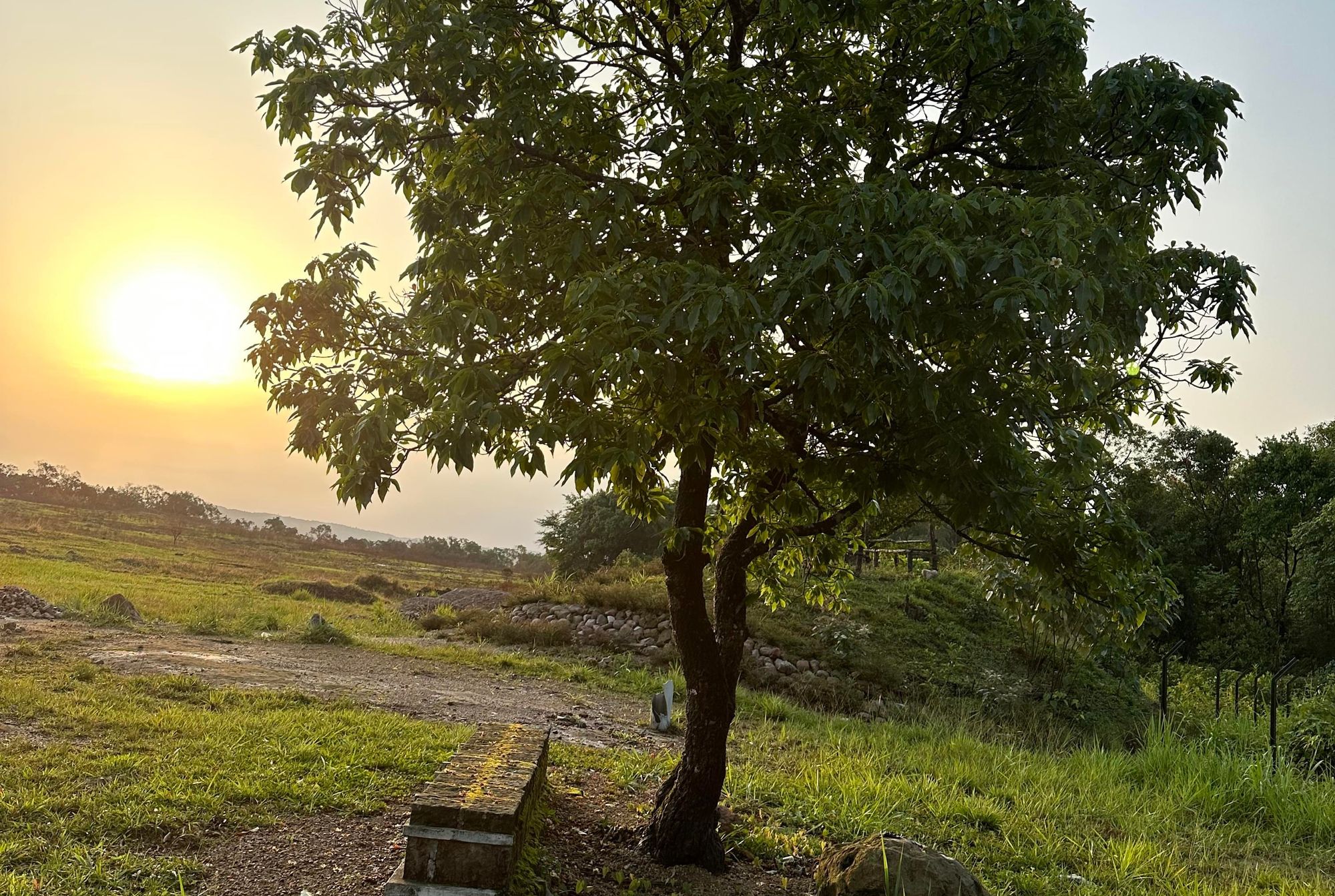
Sarath Babu never intended to visit Meghalaya.
The central government employee from Chennai had spent most of his adult life within the walls of the routine. But it was a misplaced postcard that shifted something. It was tucked between old books he had ordered from a secondhand seller online: a faded photograph of the Double Decker Root Bridge in Cherrapunjee. On the back, in loopy handwriting, someone had scribbled: “We are all just walking each other home.”
It hit him. Something about the phrase, the chance, the raw image of nature reclaiming space - he could not ignore it. Within weeks, he applied for leave and booked a solo trip to Meghalaya to answer a tug he had not felt before. He did not know what he was searching for. Maybe meaning. Maybe memory. Maybe something was nameless that only the clouds of Meghalaya could whisper to him.
Cloud Roads and Silent Lakes
He landed in Guwahati with a light backpack and an uncharacteristically open heart. The drive to Shillong was long but meditative, with trees like guards standing tall beside the snaking road. The driver did not speak much, and Sarath did not mind. It allowed him to listen - to the hum of the hills, the rise and fall of altitudes, and the unfamiliar rhythm of Khasi conversations at roadside stalls.
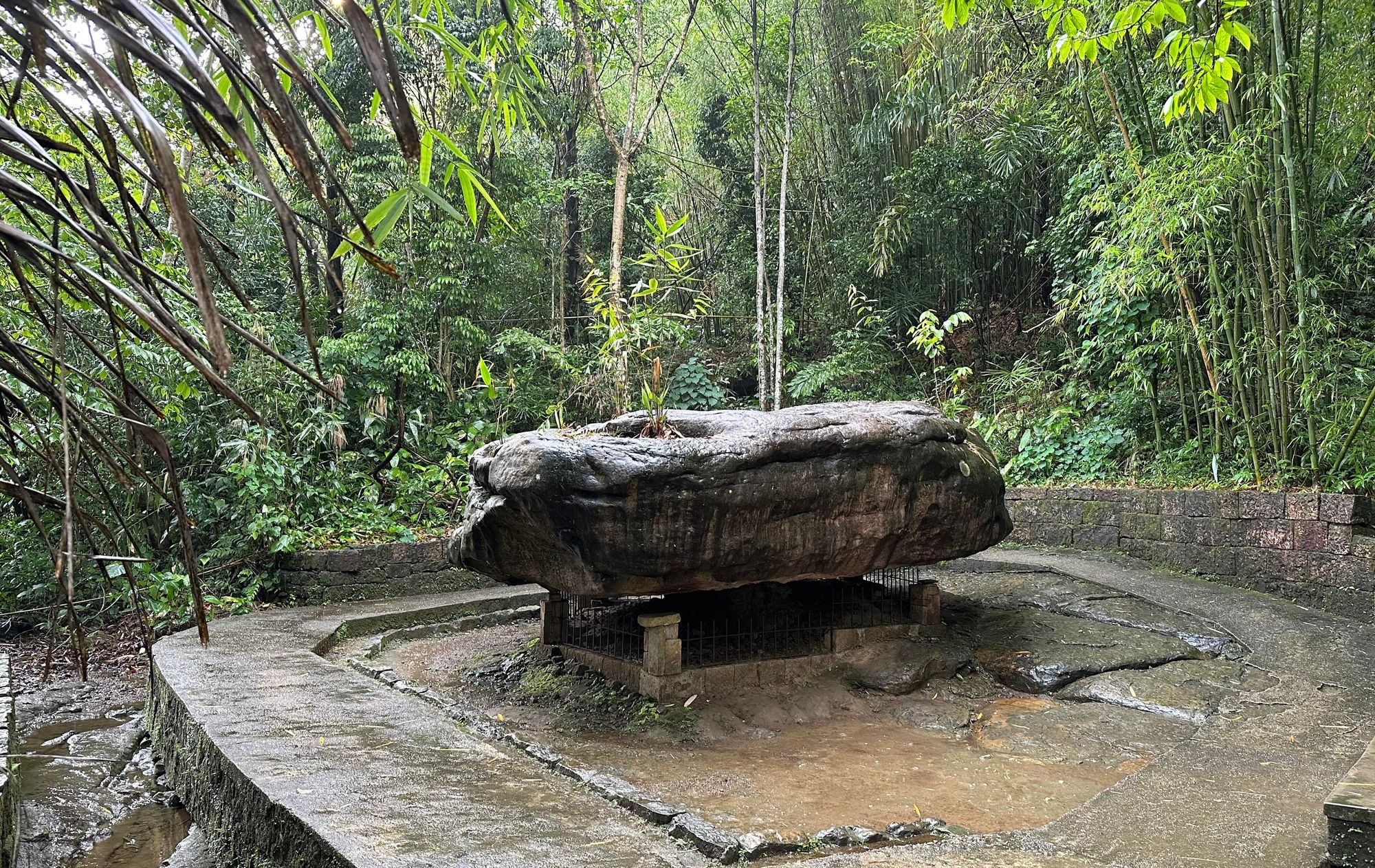
They stopped at Umiam Lake, where the water mirrored the sky like a secret kept too long. Sarath stood at the edge, hands in pockets, thinking of all the lakes he had seen in postcards but never felt with his own breath. "Looks like it is waiting for something," he murmured. Maybe, like him, the lake was in quiet anticipation.
In Shillong, he skipped the local market buzz and instead took a long evening walk through empty streets, tracing graffiti on damp walls and children’s laughter trailing from alleyways. It was indeed an exploration.
A Bridge Made of Time
The next few days were not just a checklist of waterfalls and caves. Sarath experienced them as chapters of a story unfolding just for him. He visited Elephant Falls, Mawkdok Dympep ViewPoint, and the Seven Sisters Falls - all beautiful, all vast - but it was the hike to Nongriat’s Double Decker Root Bridge that redefined his journey.
Besides being a trek, it was a negotiation with gravity, breath, and willpower. Over 3,000 steps down to reach a bridge grown - an organic sculpture shaped by the patient hands of nature and generations of Khasi villagers. When Sarath reached it, sweat-drenched and sore-kneed, he felt he had arrived at a disclosure.
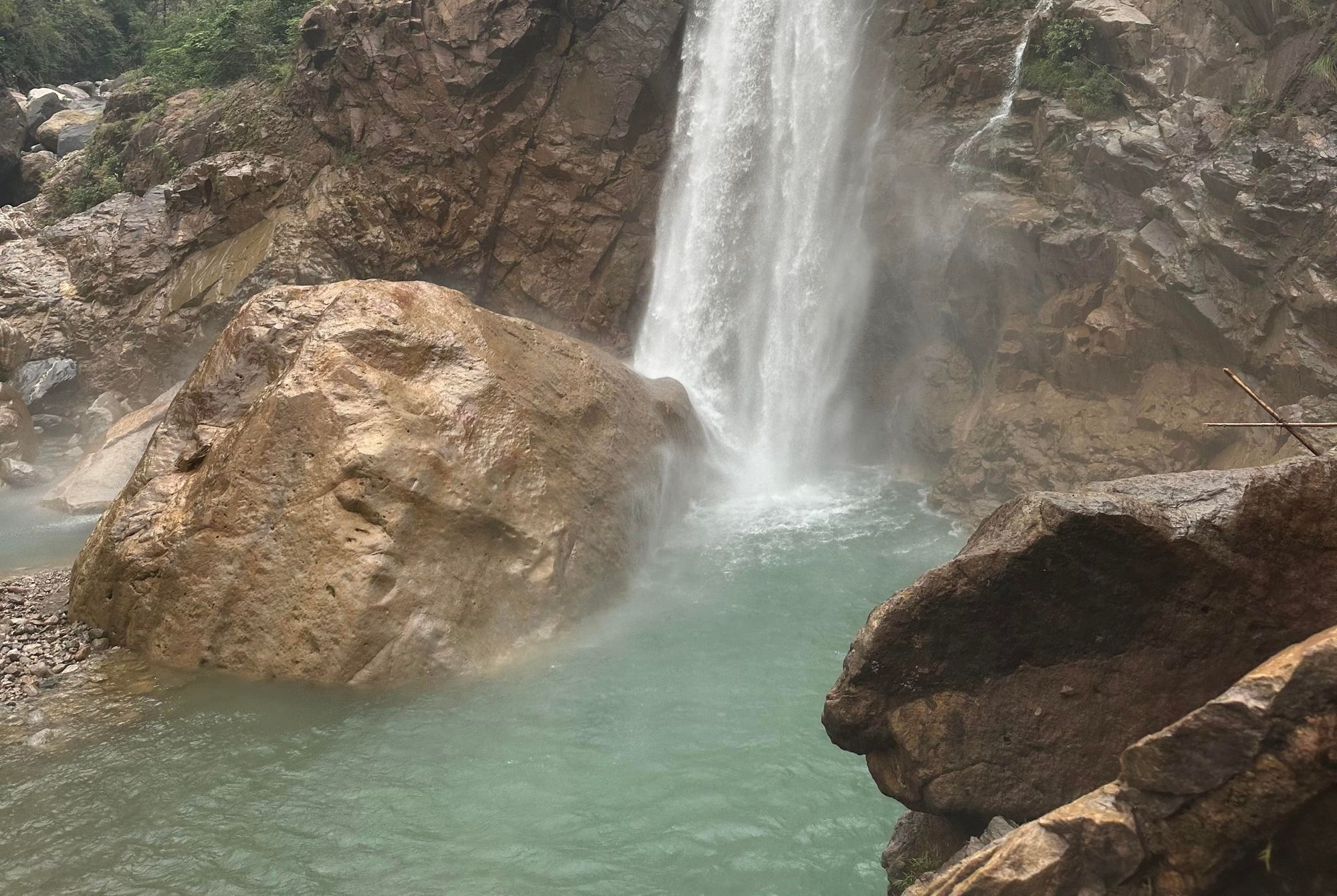
He stood in silence as water gurgled beneath and the roots whispered stories of resilience. A child from the village offered him guava and giggled when he asked in Tamil, "Do you come here every day?" The language was different, but the laughter was universal.
He chose not to trek further to Rainbow Falls. The bridge was enough. It was a living metaphor. Not all journeys needed to be completed. Some needed only to be witnessed.
Stone That Floated
Sarath’s stop at Mawlynnong, the cleanest village in Asia, felt like stepping into an alternate universe. Here, every home had flowers, every street corner had a bamboo basket for trash, and every child had a ready smile. But it was the Balancing Rock that struck him the most, an enormous boulder dangerously resting on a tiny stone.
“It defies logic,” a co-traveller said.
Sarath did not respond. In his mind, he thought: Some things survive not because of strength but because of belief.
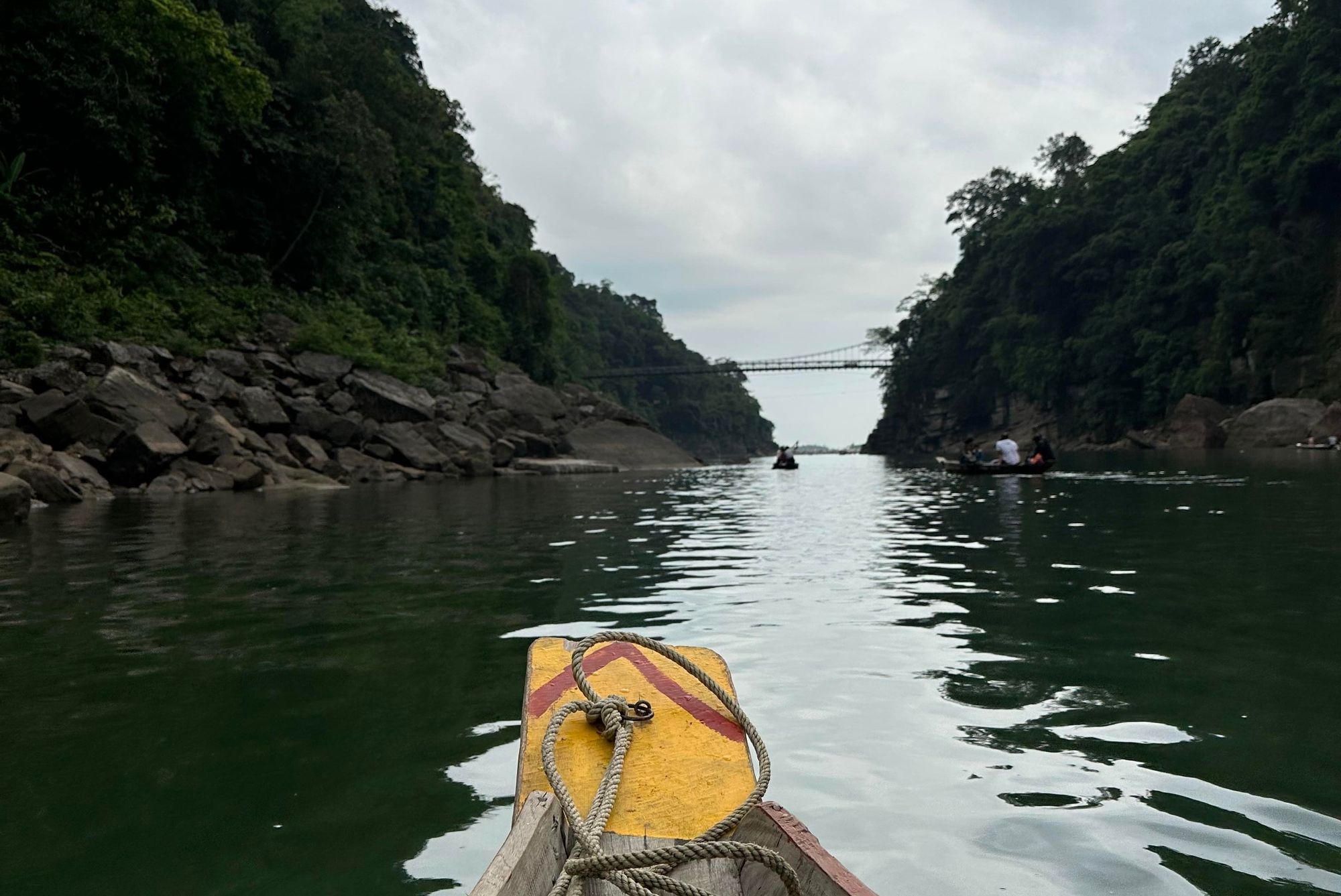
The boat ride in Dawki’s Umngot River was equally surreal. The waters were so transparent that it felt like the boat was floating in midair. Sarath dipped his hand into the river and watched the ripples distort the illusion. Isn’t that what life was - moments of clarity disturbed by movement?
That night, he lay in a tent by the river. The stars overhead had no competition from city lights. He scribbled in his notebook: “There is no one here with me. But I feel more accompanied than ever.”
Falling Into Place
On the fifth day, Sarath visited Krang Suri Falls in Jowai. Unlike other waterfalls where tourists posed hurriedly, here, people stayed. Sarath removed his shoes and stepped into the cool and inviting pool beneath the falls. The water stung, then soothed. Here, time passed like the cascading curtain above him.
He floated there for some time.
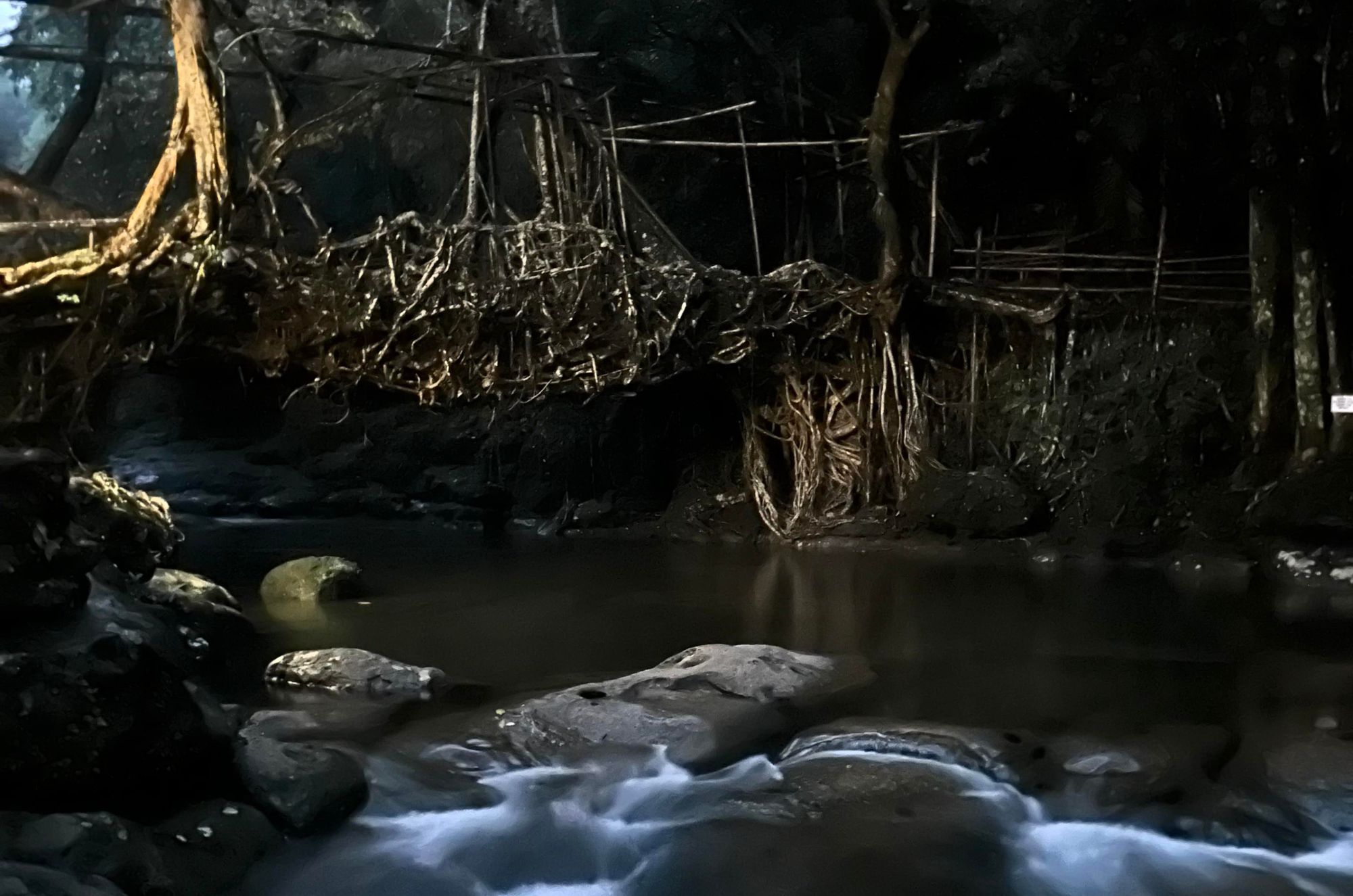
And, later, he sat quietly at Laitlum Canyon, watching the horizon fold into itself. The wind was strong and almost conversational. He imagined someone asking him, "So, what did you find here?"
He smiled to himself. "Nothing. And maybe that is everything."
The Return
On the final day of his Meghalaya trip, Sarath returned to Shillong and made his way to the Kamakhya Temple in Guwahati. He had not expected to visit it, but something told him it was necessary.
As he stood before the ancient shrine, he simply said thank you.
Thank you for the postcard. Thank you to the person who left it in a second-hand bookshop. Thank you for the journey that was not planned but was perhaps always meant to be.
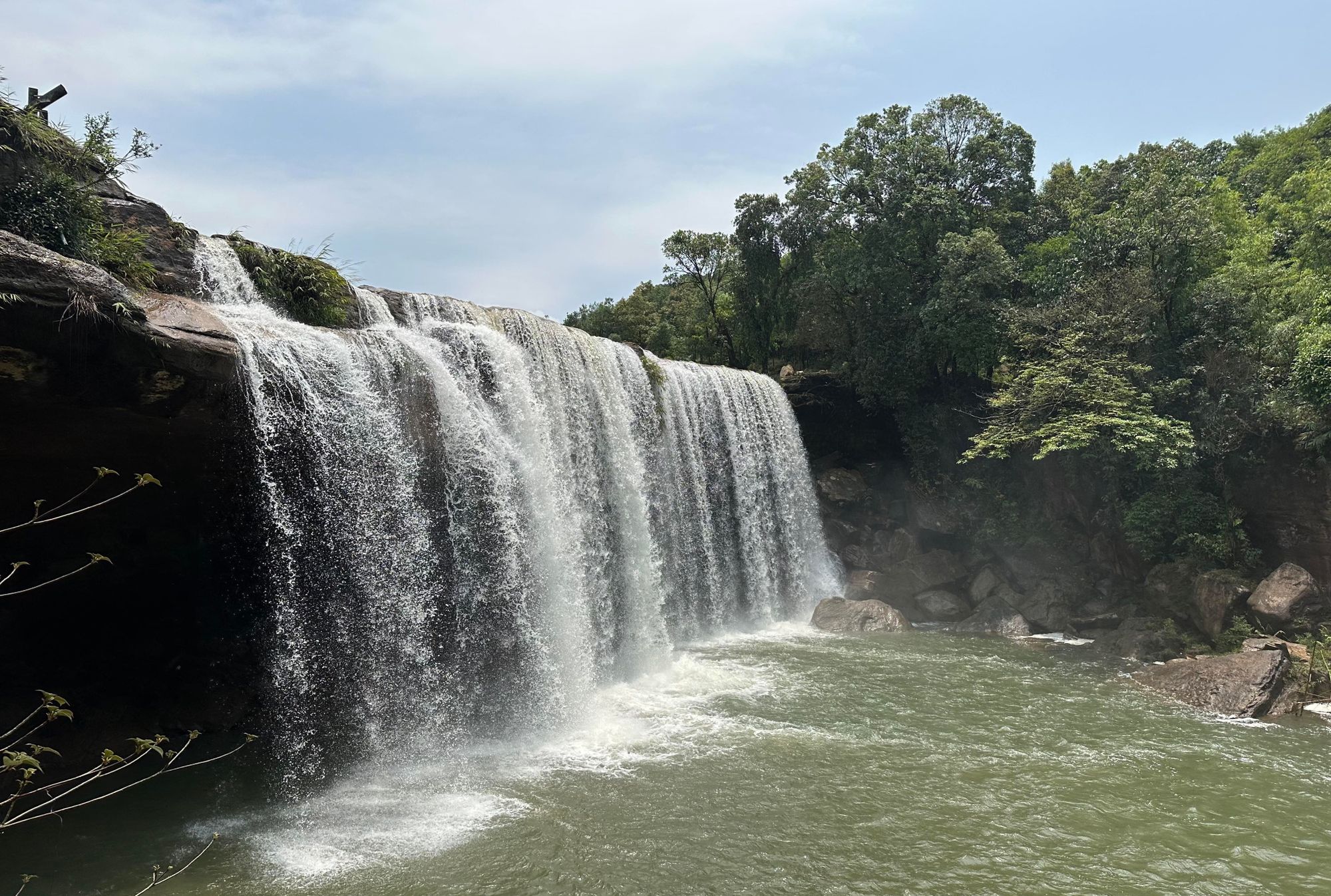
When he boarded his flight back to Chennai, he carried souvenirs like a root bridge-shaped pendant and a river pebble from Dawki.
Some journeys change your destination.
Some change your direction.
But a few, like this one, change your definition.
And Sarath Babu knew he would never look at a map or himself the same way again.
Read More: Thrillophilia Meghalaya Reviews